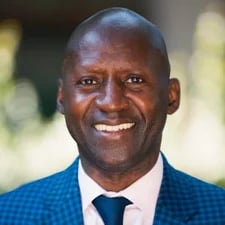by CAEL on Dec 12, 2023
Given the advances in science and technology that will allow adults to live and work longer, universities must create (or recreate) educational opportunities aligned and possibilities for adults over 50 years of age, particularly individuals from the military, nontraditional, and working (MNW) students from underrepresented groups. This presentation focuses on creating new opportunities for MNW from a S-JEDI (social justice, equity, diversity, and inclusion) perspective.
As adults reach the age of 50 and beyond, many find themselves contemplating new possibilities and opportunities. One avenue that is often overlooked is post-secondary education. While it may seem unconventional or even unnecessary for adults in this age group to pursue further education, there are several reasons why it is important.
Webinar presented by:
Dr. Thomas Stewart, Executive Vice President and Executive Director of the Cause Research Institute

Dr. Stewart also Co-Chairs the Social Justice, Equity, Diversity, and Inclusion (S-JEDI) Council at National University. Dr. Stewart is an experienced executive leader, with over 30 years of K-12 and post-secondary experience in education and criminal justice reform, innovation, and transformation. He has done extensive work in providing educational and other developmental opportunities for underserved and underrepresented individuals and communities. Before his current position, Dr. Stewart served as President of John F. Kennedy University and President of Patton University. He has co-founded or led over 20 schools, universities, and non-profit organizations, including the Black Alliance for Educational Options (BAEO) and National Black Graduate Student Association (NBGSA). He has authored numerous publications on school reform, parent involvement, criminal justice reform, and leading change with grace. Dr. Stewart is a U.S. Army veteran, and he earned a Doctor of Philosophy in Government from Harvard University and a Bachelor of Arts in Political Science from the University of the District of Columbia.
Register in advance for this webinar: